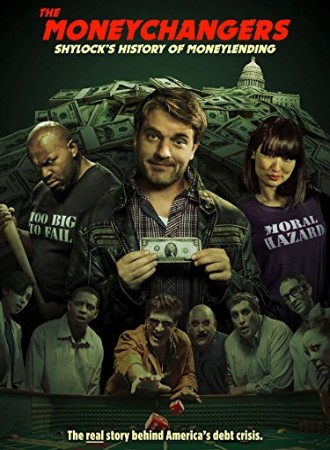
The Moneychangers 2016
Distributed by Tugg, Inc., 855-321-8844
Produced by Chris Mortensen and Nicholas DeSantis
Directed by Chris Mortensen
DVD , color, 101 min.
College - General Adult
Banking, Financial Institutions, Capitalism, Government, U.S. History
Date Entered: 12/20/2016
Reviewed by Phil Salvador, American University Library, American UniversityMany documentaries have attempted to unpack the causes of the 2008 subprime mortgage crisis. The Moneychangers offers a unique perspective – could a history of banking regulation and cultural demonization of financial institutions have contributed to the instability? Unfortunately, the film presents its case through an exaggerated, condescending, and nakedly political lens that lessens its value as an instructional tool.
The Moneychangers plays strongest when explaining the nuts and bolts of financial institutions; the introductory segments on the history of fractional banking and later explanations of how subprime mortgages work are engaging.
Between these sections, the film offers political commentary from former banking industry heads and conservative intellectuals. (As a representative example of this viewpoint, the film interviews Ayn Rand Institute executive director Yaron Brook, also credited as executive producer.) This does effectively outline a libertarian take on the financial crisis, suggesting that politically expedient overregulation interfered with the healthy operation of banks. However, its big-picture conclusions are almost comically hyperbolic and deferential to the banking industry’s outlook, damaging its value as an informative history of the subject. The film makes broad ideological claims – like accusing banking regulations of suppressing American creativity – with little convincing critical attention or follow-up.
The film couches its discussion in a misguided framing device featuring the character Shylock, a banker who muses on the corrupt financier stereotype. Shylock’s smugness adds no persuasive value to the documentary (at one point, he seems to blame Jesus indirectly for modern financial instability). The whiz-bang editing style and cheap green screen effects of these segments prove more confusing than exciting.
Portions of The Moneychangers may be useful for demonstrating a perspective on American financial policy that faults the federal government rather than banks. It is not recommended as the objective financial regulatory history it purports to be.